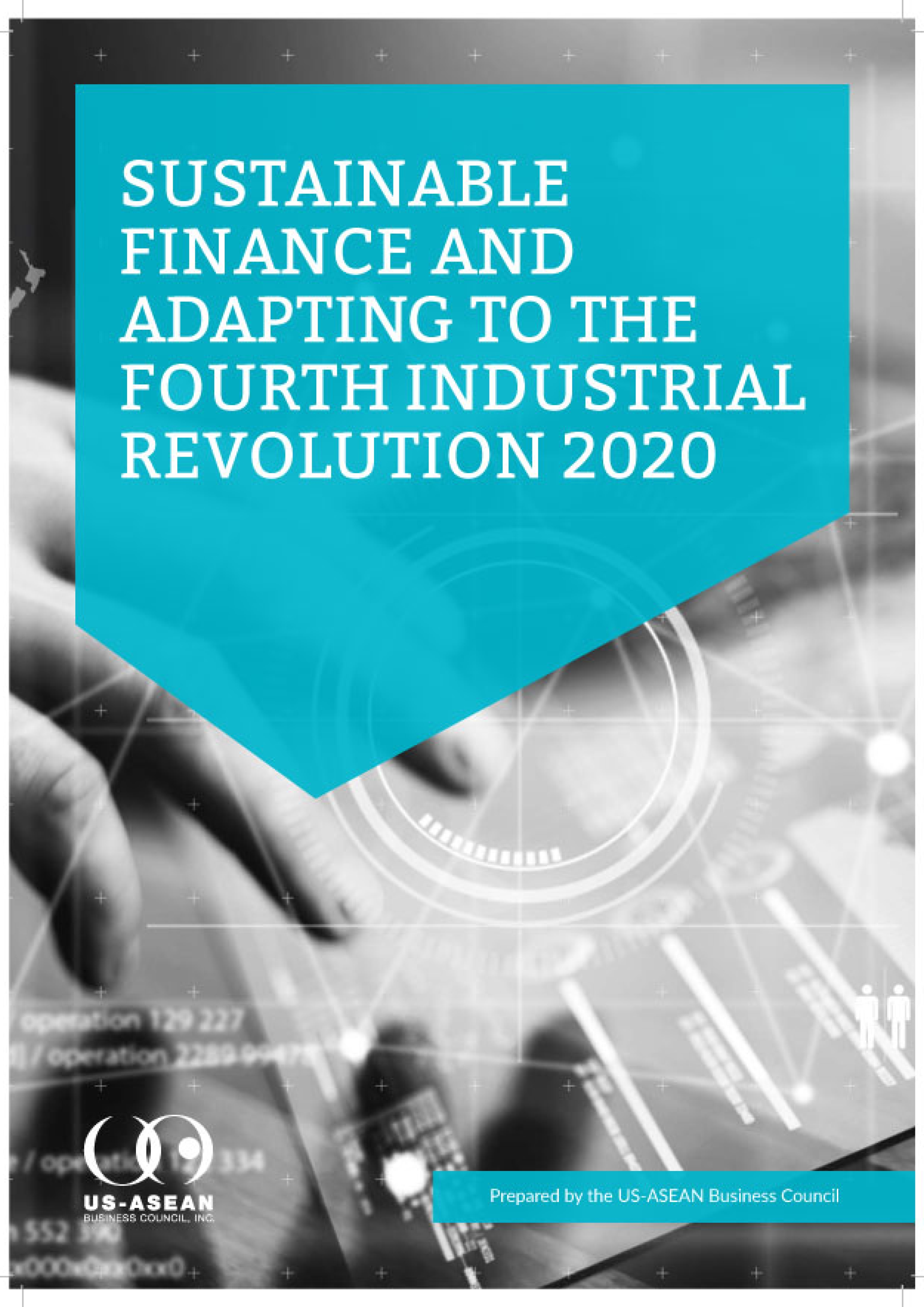
The US-ABC’s Financial Services Committee hopes to expand upon past collaboration with ASEAN financial policymakers to realize their vision of promoting stronger, more resilient and inclusive growth in the region. This paper offers our ideas and recommendations for 2020 and beyond under the themes of Sustainable Finance and Adapting to the Fourth Industrial Revolution:
Digital Transformation in Financial Services.
We also want to underscore our recognition of the challenges that ASEAN Member States are currently experiencing as a result of the COVID-19 pandemic. This pandemic is not just a global health crisis, but also an economic one, and it is necessary to tackle both at once. The virus has impacted demand, production, supply chains and investment, which has led to global economic disruption as well as high levels of volatility in exchange rates and markets. To reduce the impact of the outbreak, strong collaboration between
the public and private sectors will be vital to aid in economic recovery. In addition to long-term societal challenges, COVID-19 has also provoked a range of short-term financial measures from governments in the region and beyond. These include interest rate cuts and fiscal stimulus measures, such as direct assistance for businesses and consumers and tax relief.
This paper contains a number of recommendations that ASEAN governments may also want to consider formulating balanced approaches to implementing public health and economic policy in response to the crisis. In the immediate term, in addition to using macro tools like tax policies and bilateral currency swaps, we believe digital solutions (such as allowing electronic authentication and verification) can support business continuity, with an immediate impact during a crisis, as well as providing longer term benefits to individuals, governments and the economy. Over the longer-term, an increasing focus on disaster-risk (including pandemic-risk)
financing, as well as data collection on catastrophe risk model-building could help governments prepare for future events. We also believe creating additional mechanisms to facilitate effective communication between the public and private sectors can be valuable in both the near term and in the post crisis recovery period.



